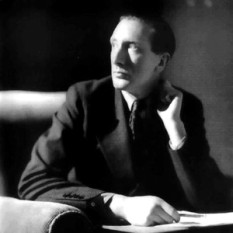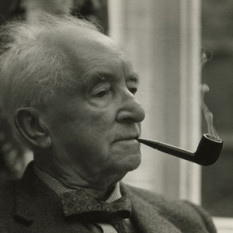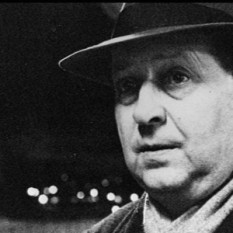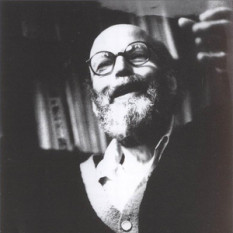Robert Simpson (1921-1997) was arguably Britain's most important composer since Vaughan Williams; he was certainly one of the century's most powerful and original symphonists anywhere. He completed 11 symphonies, concertos for violin, piano, flute and cello, 15 string quartets, and two choral compositions. Simpson used those large-scale forms to grapple with particular compositional problems, often with considerable ingenuity. Most employ the structural principle that makes his music so singularly compelling: the tension between opposing tonalities - a reflection, perhaps, of the vast tensions that inform Simpson's hobby, astronomy.
Over time, Simpson moved away from the pitting of one key against another; instead, he began to examine the generative power of an interval or series of intervals - though the controlling grip of key still gave his music a sense of purposiveness and direction that very few of his contemporaries ever achieved. The 50-minute Ninth Symphony (1986-87), the work Simpson himself regarded as his greatest, is built in a single tempo, over a single basic pulse; what the listener perceives, of course, is not some stale compositional technique but an enormous organic construction of terrifying power.
Simpson was a broadcaster, and one of the finest writers on music that the English language has yet produced, with books on Beethoven, Bruckner, Nielsen and Sibelius. He was also a powerful force in promoting fellow composers in whose music he believed.
The emergence of Simpson's music into the limelight began in earnest only in the 1980s, with the formation of a Robert Simpson Society (its archive is held at Royal Holloway College in Egham) and the initiation of the near-complete survey of his music on the Hyperion label. .
You can find information through the best music search engine - Muzlan.top 😊All materials on request "Robert Simpson" are available on page Robert Simpson
Yes of course. You can listen tracks on the page Robert Simpson
Yes of course. You can download tracks on the page Robert Simpson
This page is found by queries: Robert Simpson free download, Robert Simpson mp3 download, Robert Simpson all mp3, Robert Simpson song download, Robert Simpson song listen




